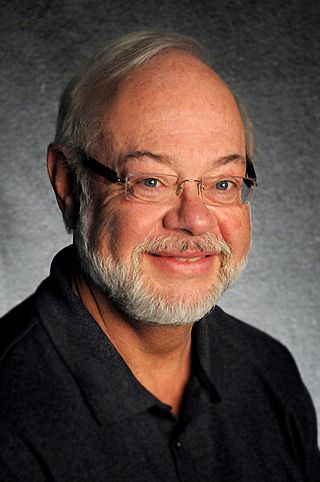
Commodore International Corporation was a Bahamian home computer and electronics manufacturer with executive offices in the United States founded by Jack Tramiel and Irving Gould. Commodore International (CI), along with its subsidiary Commodore Business Machines (CBM), was a significant participant in the development of the home computer industry in the 1970s to early 1990s. In 1982, the company developed and marketed the world's second-best selling computer, the Commodore 64, and released its Amiga computer line in July 1985. Commodore was one of the world's largest personal computer manufacturers, with sales peaking in the last quarter of 1983 at $49 million.

The Motorola 68000 is a 16/32-bit complex instruction set computer (CISC) microprocessor, introduced in 1979 by Motorola Semiconductor Products Sector.

Acorn Computers Ltd. was a British computer company established in Cambridge, England, in 1978. The company produced a number of computers which were especially popular in the UK, including the Acorn Electron and the Acorn Archimedes. Acorn's BBC Micro computer dominated the UK educational computer market during the 1980s.
Educational software is a term used for any computer software that is made for an educational purpose. It encompasses different ranges from language learning software to classroom management software to reference software. The purpose of all this software is to make some part of education more effective and efficient.

Broderbund Software, Inc. was an American maker of video games, educational software, and productivity tools. Broderbund is best known for the 8-bit video game hits Choplifter, Lode Runner, Karateka, and Prince of Persia, as well as The Print Shop—originally for printing signs and banners on dot matrix printers—and the Myst and Carmen Sandiego games. The company was founded in Eugene, Oregon, and moved to San Rafael, California, then later to Novato, California. Broderbund was purchased by SoftKey in 1998.
Moodle is a free and open-source learning management system written in PHP and distributed under the GNU General Public License. Moodle is used for blended learning, distance education, flipped classroom and other online learning projects in schools, universities, workplaces and other sectors.
The Minnesota Educational Computing Consortium, most commonly known as MECC, was an organization founded in 1973 best known for developing the edutainment video game series The Oregon Trail and its spinoffs. The goal of the organization was to coordinate and provide computer services to schools in the state of Minnesota; however, its software eventually became popular in schools around the world. MECC had its headquarters in the Brookdale Corporate Center in Brooklyn Center, Minnesota. It was acquired by SoftKey in 1995 and was shut down in 1999.

Gateway, Inc., previously Gateway 2000, Inc., was an American computer company originally based in Iowa and South Dakota. Founded by Ted Waitt and Mike Hammond in 1985, the company developed, manufactured, supported, and marketed a wide range of personal computers, computer monitors, servers, and computer accessories. At its peak in the year 2000, the company employed nearly 25,000 worldwide. Following a seven-year-long slump, punctuated by the acquisition of rival computer manufacturer eMachines in 2004 and massive consolidation of the company's various divisions in an attempt to curb losses and regain market share, Gateway was acquired by Taiwanese hardware and electronics corporation Acer, in October 2007 for US$710 million.

PLATO, also known as Project Plato and Project PLATO, was the first generalized computer-assisted instruction system. Starting in 1960, it ran on the University of Illinois's ILLIAC I computer. By the late 1970s, it supported several thousand graphics terminals distributed worldwide, running on nearly a dozen different networked mainframe computers. Many modern concepts in multi-user computing were first developed on PLATO, including forums, message boards, online testing, email, chat rooms, picture languages, instant messaging, remote screen sharing, and multiplayer video games.
Cromemco, Inc. was a Mountain View, California microcomputer company known for its high-end Z80-based S-100 bus computers and peripherals in the early days of the personal computer revolution.

A Virtual Learning Environment (VLE) is a system specifically designed to facilitate the management of educational courses by teachers for their students. It predominantly relies on computer hardware and software, enabling distance learning. In North America, this concept is commonly denoted as a "Learning Management System" (LMS).

RM plc is a British company that specialises in providing information technology products and services to educational organisations and establishments. Its key market is UK education including schools, colleges, universities, government education departments and educational agencies.

Michael W. Allen is an American software developer, educator, and author. He is known for his work on e-learning, and led the development of the Authorware software.

Kahoot! is a Norwegian online game-based learning platform. It has learning games, also known as "kahoots", which are user-generated multiple-choice quizzes that can be accessed via a web browser or the Kahoot! app.

Simon Rogerson is lifetime Professor Emeritus in Computer Ethics at the Centre for Computing and Social Responsibility (CCSR), De Montfort University. He was the founder and editor for 19 volumes of the Journal of Information, Communication and Ethics in Society. He has had two careers; first as a technical software developer and then in academia as reformer. He was the founding Director of CCSR, launching it in 1995 at the first ETHICOMP conference which he conceived and co-directed until 2013. He became Europe's first Professor in Computer Ethics in 1998. His most important research focuses on providing rigorously grounded practical tools and guidance to computing practitioners. For his leadership and research achievements in the computer and information ethics interdisciplinary field he was awarded the fifth IFIP-WG9.2 Namur Award in 2000 and the SIGCAS Making a Difference Award in 2005.

Kerala Infrastructure and Technology for Education (KITE) is a state owned special purpose company under Department of General Education of the Government of Kerala. It was developed to support ICT enabled education for schools in Kerala. The erstwhile IT@School Project was transformed into KITE for extending its scope of operations in August 2017. KITE was the first SPV company to get funded by KIIFB.
Smoke Signal Broadcasting, Inc. (SSB), later known as Smoke Signal, was an American computer company founded in 1976 by Frederic Jerome "Ric" Hammond of Hollywood, California. The company earned its reputation by offering expansions for the Southwest Technical Products (SWTPC) 6800 microcomputer. It later manufactured its own line of computers, called the Chieftain. Though it remains little-known, Smoke Signal was an early and important manufacturer of multi-user computer systems.
IBM EduQuest, later shortened to EduQuest, was a subsidiary of American multinational technology corporation IBM that catered to the elementary and secondary educational market. A spin-off of the company's Educational Systems division spearheaded by James Elton Dezell Jr. (1933–2000), EduQuest developed software and hardware for schools. Most prominent was their line of all-in-one personal computers, whose form factor was based on IBM's PS/2 Model 25.

The Dimension 68000 is a microcomputer introduced by the Micro Craft Corporation in 1983 that sought to emulate the Apple II, the IBM PC, and various CP/M-centric computers through a family of coprocessor expansion cards and emulation software. The Dimension 68000 can also run as a standalone computer based on the Motorola 68000 from which it gets its namesake. The computer is mostly the brainchild of Mike Carpenter, a former executive of a scientific instrument manufacturer who incorporated Micro Craft in Dallas, Texas, to develop the Dimension 68000. It had a market lifespan of three years and received mixed, mostly positive, reception from the technology press. Criticism was leveled at the $6,250 price tag for the computer with the full deck of coprocessor cards, as well as the extent of the emulation power of those cards.
Fortune Systems Corporation, later Tigera Group, Inc. and Connectivity Technologies, Inc., was an American computer hardware and software company active from 1980 to 2011. The company existed as a manufacturer of Unix workstations between 1980 and 1987 and are most well known for their Fortune 32:16 line of Motorola 68000-based workstations. Following years of financial turmoil and executive churn, the company left the computer industry after selling the majority of their hardware assets off in 1987, followed by their software assets in 1988.













